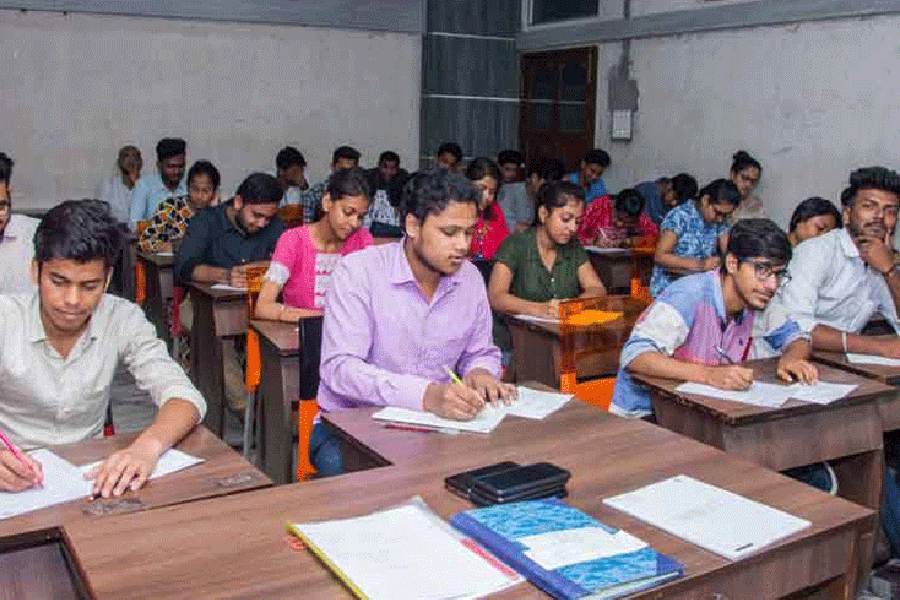Worries over common PhD entrance test, central universities skip sign up for CUET-PhD


Some teachers and students have raised concerns over the fees, timing, format and alleged opacity of the common PhD entrance test, conducted by the National Testing Agency for the first time this year and sidestepped by most of the 45-odd central universities.
Jawaharlal Nehru University, Delhi University, Banaras Hindu University and Babasaheb Bhimrao Ambedkar University were the lone central universities to sign up for the common test, the CUET-PhD.
The exam fee was Rs 1,200 for general category candidates, Rs 1,100 for OBC and EWS candidates, and Rs 1,000 for Scheduled Caste and Scheduled Tribe candidates. The fee for challenging an answer key was Rs 1,000.
Several students criticised the “exorbitant” fees. “It discourages students, particularly those from the SC and ST communities. For them, the fees have increased nine-fold in five years (compared with what JNU charged candidates from these communities in 2018),” a student said.
Moushumi Basu, a faculty member at the School of International Studies at JNU, expressed concern about the delay in the conduct of the test and about the papers being set entirely in the multiple-choice question (MCQ) format.
The tests — for which 51,000 applied and 36,000 appeared — were held between October 26 and 31, with the results declared on November 24. Basu said the admission process would not be over till December-end.
Till 2018, JNU held its own entrance tests for undergraduate, postgraduate and PhD courses — all in the pen-and-paper mode. The tests were held in May and the admission process would be over by July. JNU’s PhD entrance test paper had a mix of MCQ, objective-type and subjective-type questions.
In 2018, JNU charged an application fee of Rs 220 from general and OBC candidates for the PhD entrance test, and Rs 110 from SC and ST candidates.
From 2019 till last year, JNU outsourced the test to the NTA, which set only MCQ papers and conducted the tests around the same time as it held the common test this year. But compared with the CUET-PhD, the fees were lower: Rs 600 for general and EWS candidates, and Rs 350 for OBC, Dalit and tribal candidates last year.
Basu advocated a return to the pre-2019 system of JNU holding its own entrance tests. She said MCQ tests were not the ideal way to assess research aspirants, whose depth of knowledge and interest can be judged better through subjective-type questions.
“The Jamia (Millia Islamia) and several other central universities stayed away from the common entrance test; JNU could have stayed away, too,” Basu said. “But it took part despite several concerns expressed by the teachers’ association about the way the NTA is conducting the tests.”
The vice-chancellor of another central university said that signing up for the common entrance test was not mandatory.
“Our entrance test is running smoothly and on time. Since the NTA had delayed the announcement of the test (till August), we decided not to join,” he said.
Many academics have also flagged transparency concerns after students from certain states did unexpectedly well in the CUET-PhD.
Last year, the UGC chairman had alleged “sabotage” — without elaboration — after the CUET-UG tests, also conducted by the NTA, had to be cancelled at many private centres.
An email has been sent to NTA director-general Subodh Kumar Singh seeking the reasons for the delay in the conduct of the PhD entrance test, the high fees charged, and the allegations of opacity. His response is awaited.